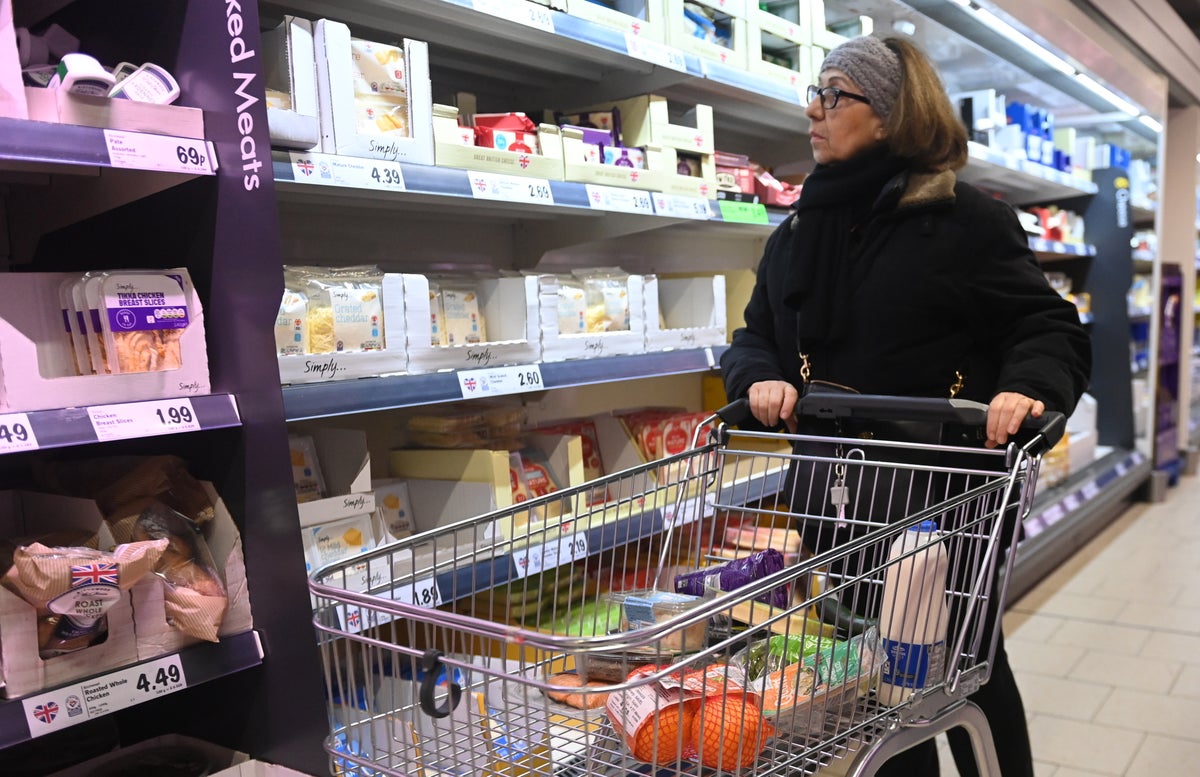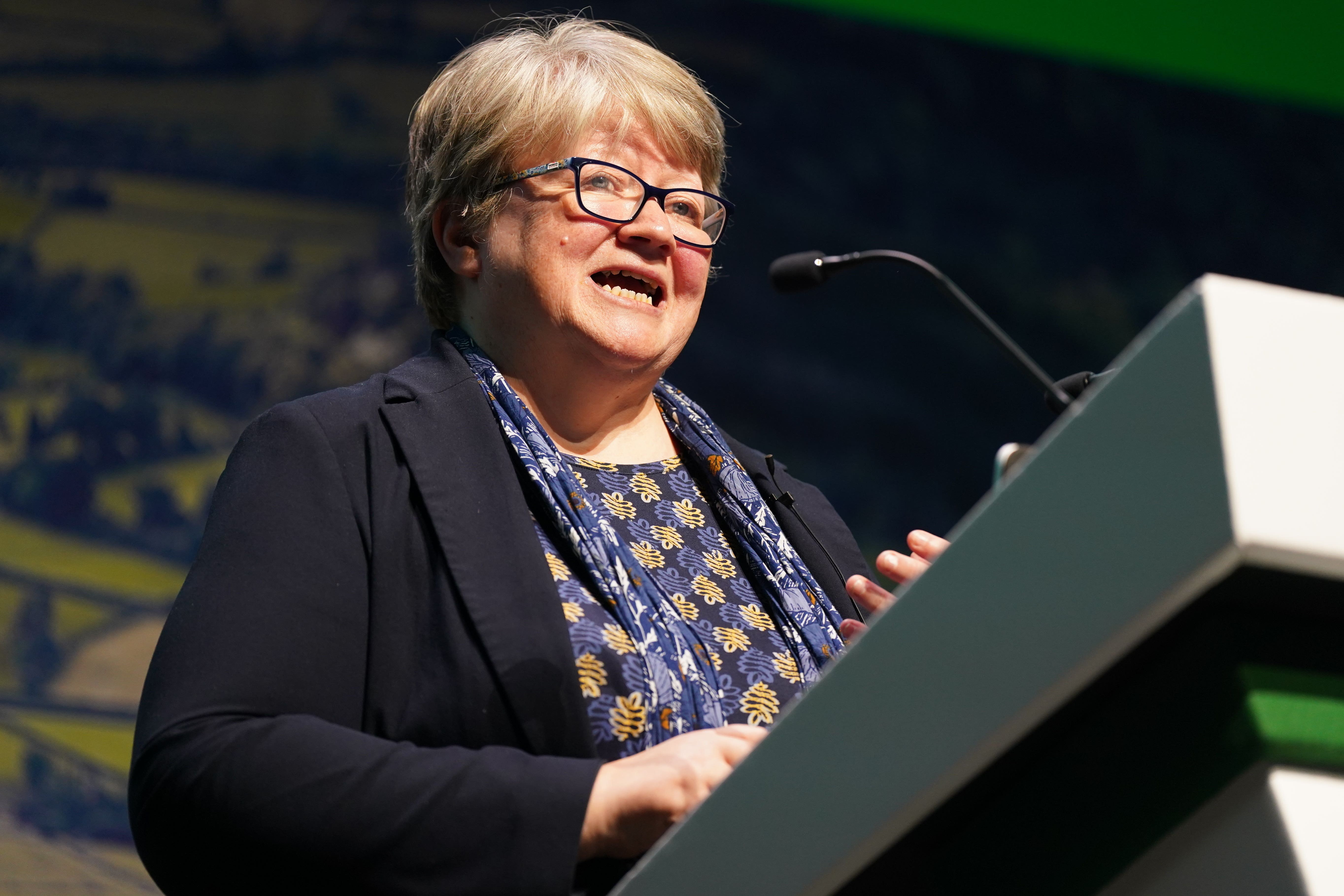
It is not possible to replace foreign workers in agriculture and other industries with UK labourers, food sector groups have warned after Suella Braverman called for “less dependency” on foreign labour.
The home secretary told a right-wing conference Britain “mustn’t forget how to do things for ourselves” and there is “no good reason” why the UK can’t train enough butchers and fruit pickers.
But industry leaders said more overseas staff are needed to meet shortages and help tackle soaring food prices, as farming chiefs and supermarket bosses gather for a summit at No 10 on Tuesday.
The government has already increased the number of visas for seasonal agricultural workers for this year by 15,000 to 45,000. Despite the rise, several sectors are still reporting staff shortages, which are driving up wages and increasing costs to consumers.
The National Farmers’ Union (NFU) is pushing for the number of seasonal workers’ visas to be increased – pointing to a failed “Pick for Britain” campaign that attempted to recruit domestic workers from 2020 to 2021 as proof vacancies cannot filled without migration.
President Minette Batters has said that it is “important we have a seasonal worker scheme that runs for nine months” instead of six – saying labour shortages remained “challenging and costly” for farmers.
She told Sky News: “We simply do not have enough people unemployed at the moment to do the jobs that are available,” adding that Britain lost £16m worth of fruit and vegetables wasted last year.
Deputy NFU president Tom Bradshaw said the union was now pushing for a five-year rolling visa scheme, as well as permits to be extended to nine months to “boost Britain’s production of nutritious and affordable fruit and vegetables”.
He told The Independent: “Defra’s Pick for Britain campaign, which launched to ensure the recruitment of domestic workers, ultimately highlighted that the British workforce is not able to carry out seasonal work.”

It follows shortages of eggs and fresh produce on supermarket shelves in recent months as weather, Brexit and the conflict in Ukraine all had an impact on domestic farmers and suppliers.
The British Meat Processors Association (BMPA) told The Independent there was an estimated 10 per cent shortfall in workers the meat sector. Chief executive Nick Allen said it would take “decades” for the industry to shift to a British workforce.
“Despite considerable efforts, meat companies still struggle to recruit and retain British workers,” a BMPA spokesperson said. “Due to the geographical location of the plants, workers may need to move to take up those jobs which they’re not always able or willing to do.”
The association warned that food shortages could worsen in the near future, because food price inflation has reduced demand for meat, and if demand rises once more “the industry will again be struggling to recruit the staff it needs”.
The Food and Drink Federation (FDR) is also pushing Rishi Sunak’s government to help address labour shortages – saying the crisis was adding to prices in the supermarket.
The FDF’s director of growth Balwinder Dhoot told The Independent: “The industry is facing significant and stubborn labour shortages across a variety of roles, from warehouse operators to engineers. These shortages … are hampering growth and contributing to rising costs.”

Clarkson’s Farm star Kaleb Cooper – who advises Jeremy Clarkson in the popular Amazon Prime series – is among food leaders who have arrived at No 10 for a summit aimed at securing the UK’s supermarket supply chains.
Environment secretary Therese Coffey said the government’s newly announced measures, which include a £30m investment in new technologies – were about putting “more British produce on supermarket shelves and plates”.
The government announced that 45,000 visas will be available again to the horticulture sector next year, enabling them to plan ahead for the picking season.
Ministes are also pledging more money to help boost Britain’s food sales on the world market, including funding for more global trade shows and the promotion of seafood exports.
FDF chief executive Karen Betts said the summit risks “being a missed opportunity” to address inflation which is impacting the cost of food and drink.
She said: “Alongside farming issues, we believe the summit must address costly and heavy-handed regulation, post-Brexit labelling requirements, skills shortages and the complexity of border checks, all of which are pushing up costs when food price inflation is at a record high.”







